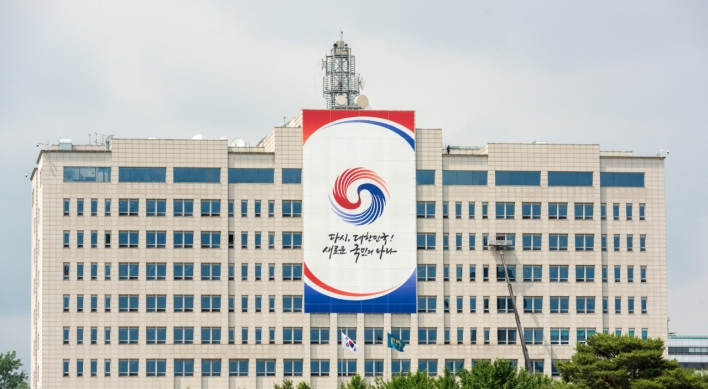South Korea’s import prices rose at the fastest pace in 27 months in March due to sharp gains in oil and other commodity prices, the central bank said Friday, pointing to growing inflationary pressure.
In local currency terms, the country’s import prices jumped 19.6 percent in March from a year earlier, picking up from a 16.9 percent on-year advance in February, according to the Bank of Korea.
The March reading marked the fastest expansion since a 22.4 percent on-year gain tallied in December 2008, the central bank said.
“Rising oil prices jacked up the country’s import prices. The time lag under which the growth of import prices spills into consumer inflation is getting shorter,” said Lim Su-young, an official at the BOK.
The country’s import prices rose for the 12th straight month in March and the pace of their ascent has quickened since August amid skyrocketing global raw material prices, the BOK added. Compared with the previous month, import prices rose 3.5 percent in March.
Oil prices have been volatile amid political unrest in the Middle East and North Africa. The costs of Dubai crude, South Korea’s benchmark, gained 40.3 percent in March from the previous year. South Korea, the world’s fifth-largest crude buyer, relies entirely on imports for its oil needs.
Reflecting rising oil costs, raw material prices soared 35.8 percent on-year last month, up from 32.7 percent in February and the fastest growth since a 47.3 percent on-year expansion in October 2008.
Meanwhile, the country’s export prices in Korean won terms climbed 9.1 percent last month from the previous year, quickening from 5.6 percent in February as oil price gains jacked up the prices of petrochemical products, the BOK noted.
The data came as the BOK on Wednesday revised up its 2011 inflation projection to 3.9 percent from its previous estimate of 3.5 percent, citing high oil and food prices.
The BOK froze the key rate at 3 percent this month due to lingering economic uncertainties. It has hiked the borrowing costs by 1 percentage point since July last year.
(Yonhap News)
In local currency terms, the country’s import prices jumped 19.6 percent in March from a year earlier, picking up from a 16.9 percent on-year advance in February, according to the Bank of Korea.
The March reading marked the fastest expansion since a 22.4 percent on-year gain tallied in December 2008, the central bank said.
“Rising oil prices jacked up the country’s import prices. The time lag under which the growth of import prices spills into consumer inflation is getting shorter,” said Lim Su-young, an official at the BOK.
The country’s import prices rose for the 12th straight month in March and the pace of their ascent has quickened since August amid skyrocketing global raw material prices, the BOK added. Compared with the previous month, import prices rose 3.5 percent in March.
Oil prices have been volatile amid political unrest in the Middle East and North Africa. The costs of Dubai crude, South Korea’s benchmark, gained 40.3 percent in March from the previous year. South Korea, the world’s fifth-largest crude buyer, relies entirely on imports for its oil needs.
Reflecting rising oil costs, raw material prices soared 35.8 percent on-year last month, up from 32.7 percent in February and the fastest growth since a 47.3 percent on-year expansion in October 2008.
Meanwhile, the country’s export prices in Korean won terms climbed 9.1 percent last month from the previous year, quickening from 5.6 percent in February as oil price gains jacked up the prices of petrochemical products, the BOK noted.
The data came as the BOK on Wednesday revised up its 2011 inflation projection to 3.9 percent from its previous estimate of 3.5 percent, citing high oil and food prices.
The BOK froze the key rate at 3 percent this month due to lingering economic uncertainties. It has hiked the borrowing costs by 1 percentage point since July last year.
(Yonhap News)


















